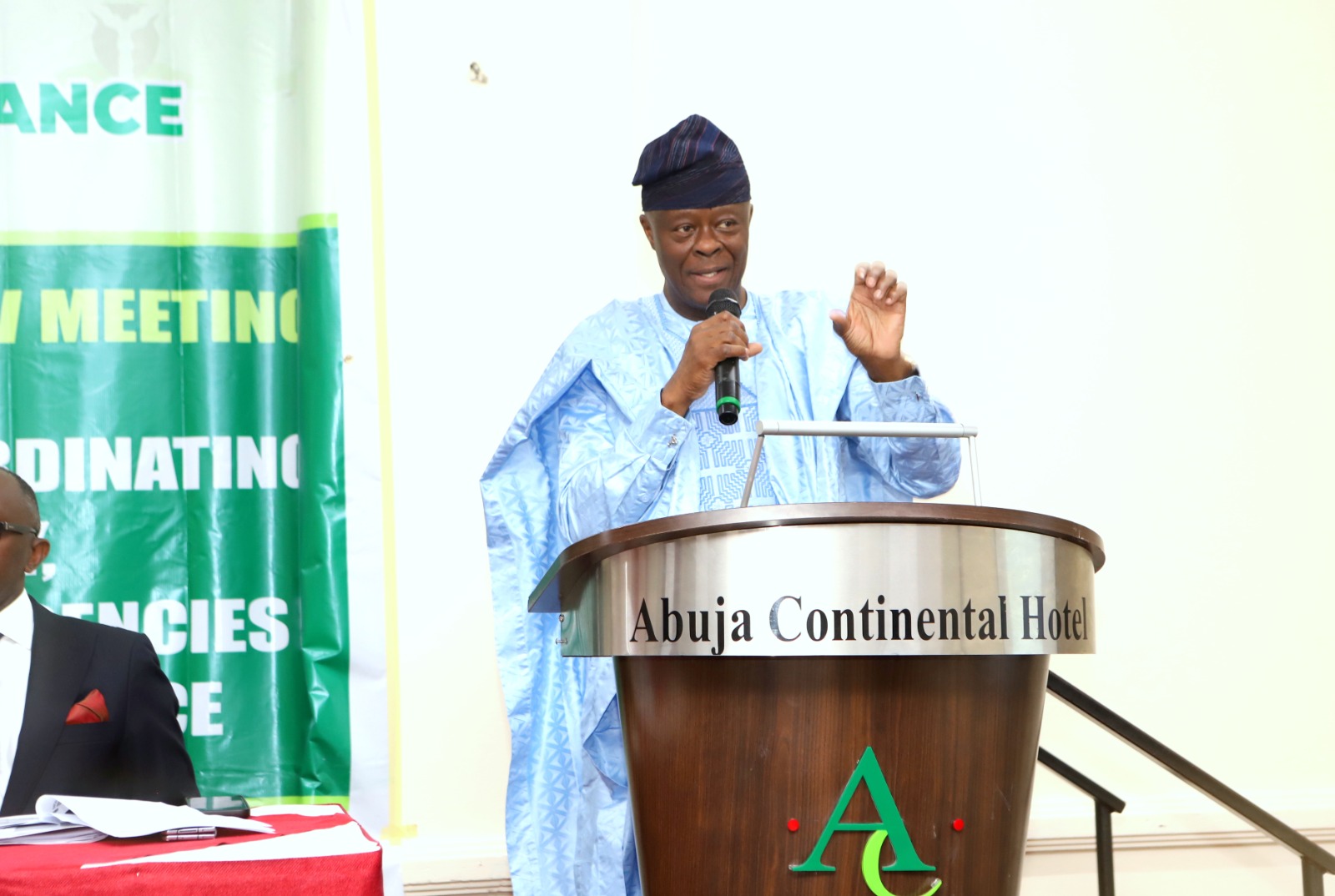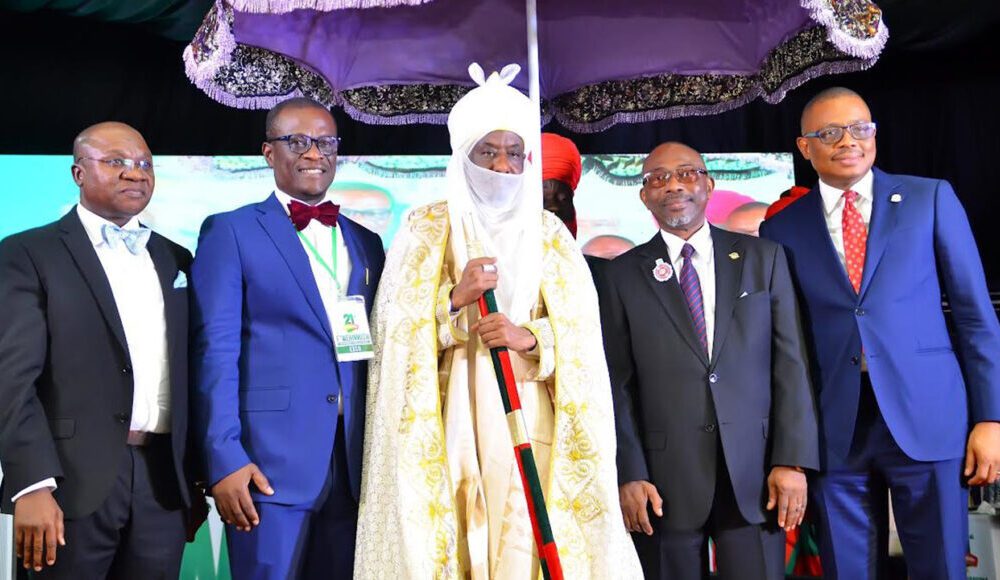To ensure full implementation of President Bola Ahmed Tinubu’s 8-Point Agenda which is aimed at boosting economic growth and development to attract foreign investors and expertise into the country, Minister of Finance and Coordinating Minister of the Economy, Mr. Wale Edun has urged Heads of Agencies and Parastatals under his Ministry to work together.
Speaking during a quarterly performance review briefing with Heads of Agencies and Parastatals in Abuja, the Minister emphasized the importance of synergy and effective implementation to achieve the goals outlined in the President’s blueprint.
Director of Information and Public Relations, Mohammed Manga in a statement quoted the minister to have described the gathering as very crucial benchmark where they can brain storm on where they need to get to and how they intend to get there
He highlighted the progress made so far under the present Administration and encouraged the Agencies and Parastatals within his jurisdiction to continue working together so as to drive economic growth and prosperity for all Nigerians.
He indicated that the meeting would also serve as a benchmark towards the implementation of the performance bond signed by Mr. President, which is aimed at reviewing the achievements made in the last one year, address challenges and chart a way forward for improved performance of the Ministry.

“We have all signed performance bonds. We all know the plan and blueprint, which are the eight point agenda of Mr. President. It has been categorised as a house. “The pillars are the fundamentals that you need for the Economy and society to thrive that is, security, rule of law, and at the very top is the roof, that is, the outcomes: food security and other measures of a good standard.
“Our collective efforts and shared commitment is not only pivotal in ensuring the efficient and effective management of the nation’s economy, but should also go a long way in facilitating the realization of the agenda of Mr. President*, he said
Edun explained further that the
call to action was imperative, especially as it is expected to galvanize the agencies to work collaboratively and efficiently towards achieving the objectives of the 8-point agenda.
The Minister pointed out that by working together, the Agencies can help create a conducive environment for economic growth, attract investors, and make opportunities available for Nigerians to thrive.
“President Bola Ahmed Tinubu led-Administration has helped stabilize the exchange rate and is working towards lower interest rates that would invite the bases for additional investments in the nation.
“It is, therefore, incumbent upon us to pursue the achievements of our deliverables with diligence and determination by establishing clear targets, timelines, and consequences for non- compliance with our respective Agencies/Parastatals.
“We can help to create a framework that incenticizes excellence and service delivery as well as build the needed synergy and partnership that can facilitate the implementation of the transformative economic policies of this administration.” Edun said
The Minister expressed optimism that with the calibre of persons heading the Agencies under his stewardship, the Ministry is sure to deliver on its mandate in compliance with the Renewed Hope Agenda of the present administration.
Earlier in her welcome address, the Permanent Secretary, Federal Ministry of Finance, Mrs. Lydia Shehu Jafiya, stated that the
engagement would provide a unique platform for robust discussions, especially in the area of implementation of the transformative policies of the present administration, which she said, aims at improving the nation’s economy, promoting job creation, and poverty reduction as well as a safety environment that will attract investments into the country.
She assured that the Ministry will continue to provide an enabling environment for the full implementation of the policies, programmes and projects of the Federal Government, in line with its mandate.
Also speaking, the Ministry’s Permanent Secretary, Special Duties, Mr. Okokon Ekenam Udo advised the Agencies to collectively align their efforts with the fiscal goals set by the Federal Government with a view to ensuring the realization of its policy objective.
He therefore called on them to bring in their wealth of experience to bear in making sure that the Agencies deliver on their respective mandates in accordance with the policy thrust of the present administration.



